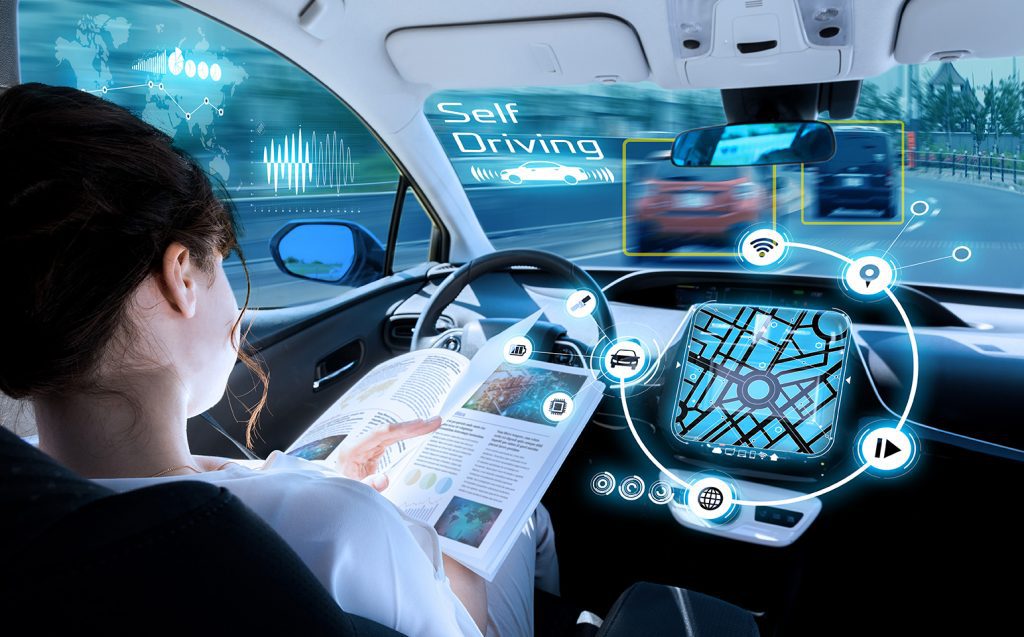UK Legalises Autonomous Vehicles

The Department for Transport (DfT) is amending The Highway Code in relation to the use of Autonomous Vehicles. The changes will spell out a driver’s responsibilities with the intention of maximising safe usage. The legal amendments clear the way for the first ‘self-driving cars’ to be used in the UK as early as this year.
A public consultation launched by the Government found that in relation to self-driving vehicles the bulk of respondents were widely in favour of the suggested changes to the Highway Code. The DfT says it will be working with the motor trade industry, regulators and safety organisations to ensure drivers have easy access to the necessary safety information regarding self-driving vehicle usage.
Steve Gooding, director of the RAC Foundation, linked the move to the Government’s leveling up agenda. He stated that the technology could improve access to transport for ”people with mobility issues” as well as the “historically disconnected” and those in “rural areas.”
What Do the UK Law Changes Mean for Self Driving Car Use?
With self-driving technology rapidly developing across the world, the Government has acted to update existing laws. Vehicles will have to achieve stringent standards to be approved as self-driving. If they do so, the first self-driving vehicles could be taking to our roads before the end of 2022. At the outset, autonomous technology is likely to be approved for vehicles moving at low speeds on motorways, such as in queues of traffic.
The Government announced in April last year a “Call for Evidence” on the subject of autonomous vehicles. It determined that Automated Lane-Keeping System (ALKS) technology could be the first step towards introducing self-driving technology. This equipment is already widely available in the motor trade market and is classed as ‘assistive.’ It is designed for use in slow-moving motorway traffic. ALKS facilitates a vehicle driving itself in a single lane at up to 37mph. The driver maintains the ability to take back control of the vehicle quickly, simply and safely as needed. Currently, the law requires that drivers must always remain responsible and in control.
A full regulatory framework is expected to be in place to support the widespread deployment of further autonomous technology by 2025. In the meantime then the new rules governing the use of self-driving cars will:
Require motorists, when utilising self-driving functions, to be ready to take over control when requested to do so. For example, as the vehicle nears a junction to exit a motorway.Include an alteration to current rules, that will allow drivers to view content that is not related to driving, whilst the self-driving vehicle is in control via a built-in display screen.Confirm that it will still be illegal to use mobile phones when the self-driving mode is in operation.
Transport minister Trudy Harrison claimed that these measures should help ”revolutionise the way we travel” with self-driving vehicles “making our future journeys greener, safer and more reliable.” The minister believes this “exciting technology is developing at pace” here whilst ensuring “strong foundations” are in place for drivers. She believes that self-driving cars could also provide an “economic boost” and went as far as to say that they will contribute to Great Britain becoming a “global science superpower.”
Mike Hawes, CEO of the Society of Motor Manufacturers and Traders, echoed Harrison’s comments, “with the right regulations in place, consumers are set to benefit from safer, more efficient journeys.” He believes the UK is, “a global leader in the deployment of self-driving technology.”
Insurance for Self-Driving Vehicles
There’s no doubt self-driving cars have taken a significant step towards their introduction in the UK with this law change. Mercedes-Benz also announced in March of this year that it will accept legal responsibility for collisions involving its cars fitted with an ALKS. So the issue of obtaining insurance for autonomous vehicles appeared to have gone a long way to resolving itself.
However, it’s important to note that the manufacturer said it will only accept liability if the incident was directly caused by a system fault, not if the driver fails to comply with their duty of care. Insurance may continue to be an obstacle for self-driving vehicles. Much remains to be clarified. Liability relating to autonomous cars is a relatively complex topic. Determining that carmakers should be liable for all incidents that occur when automated functions are operating is too simplistic. Some accidents will not be the fault of their systems’. This lack of certainty could yet lead to protracted and potentially costly disputes between insurers and manufacturers.




